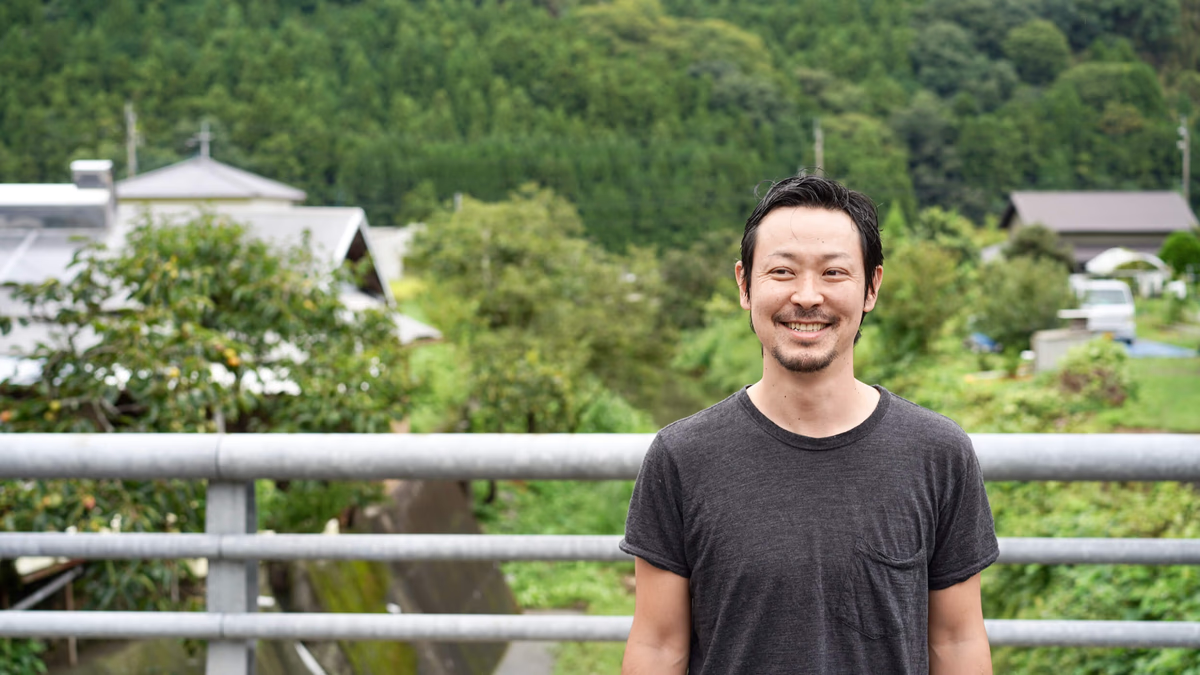こんにちは。京都在住のライター・杉本です。
9月のはじめ、ものさすサイト事務局の滝田怜子さんといっしょに、徳島・神山町にあるサテライトオフィスを訪ねました。神山サテライトオフィスは、町内いちばんの繁華街・寄井商店街に面しています(とはいえ、車は一時間数台しか通らないし、その多くは軽トラ)。ガラス張りの扉から、“あさちゃん”こと浅田亮平さんの背中が見えます。
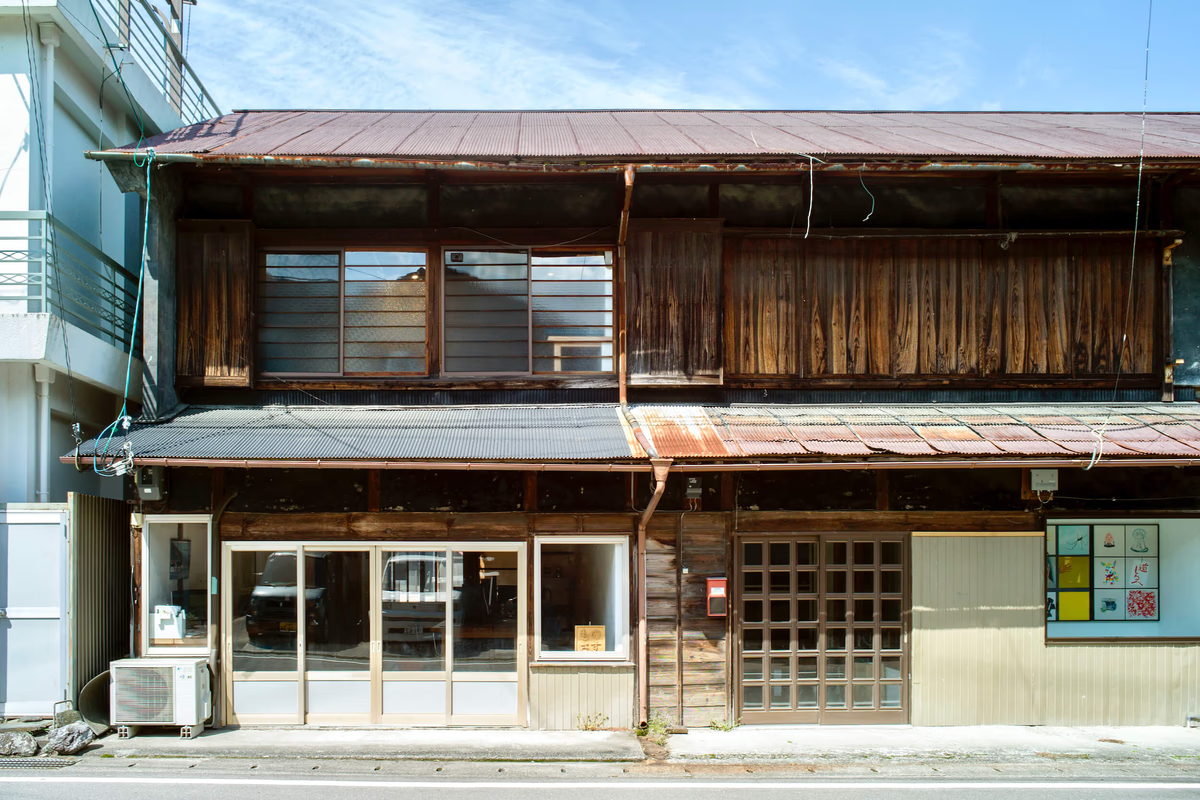
まち一番の繁華街・寄井商店街にあるモノサスのオフィス(栗原さんご提供)
今回の「自由と責任 みんなの制度と働き方実験室」は、長らく運用チームを率いてきた、チーフ・ディレクターの栗原功さんにインタビュー。神山サテライトオフィス立ち上げ当時のお話なども聞かせていただきました。さて、栗原さんの「自由と責任」とは?
できないことも「やります!」と手を挙げた
杉本:栗原さんは、モノサスに入る前はどんな仕事をしていたんですか?
栗原:テレビ映像関連のシステムの品質を評価する仕事です。モノサスで品質管理の人がやっている仕事のテレビ局版みたいなイメージです。
杉本:Webの仕事をしよう思ったのはどうしてですか?
栗原:情報系の専門学校で学んでいたとき、Webの授業だけが楽しかったんです。流れに任せて内定をもらった会社に入ったものの、30歳になったとき「このまま、この仕事をやっていていいのかな」と、改めてWeb制作を勉強する学校に通いました。すぐに就職できるかなと思っていたら、書類選考すら通らなくて。1年半で100社は応募したと思いますね。失業保険も終わりに近づいて、焦りはじめた頃にモノサスに応募しました。
杉本:Webの仕事ではどんなことがやりたかったんですか?
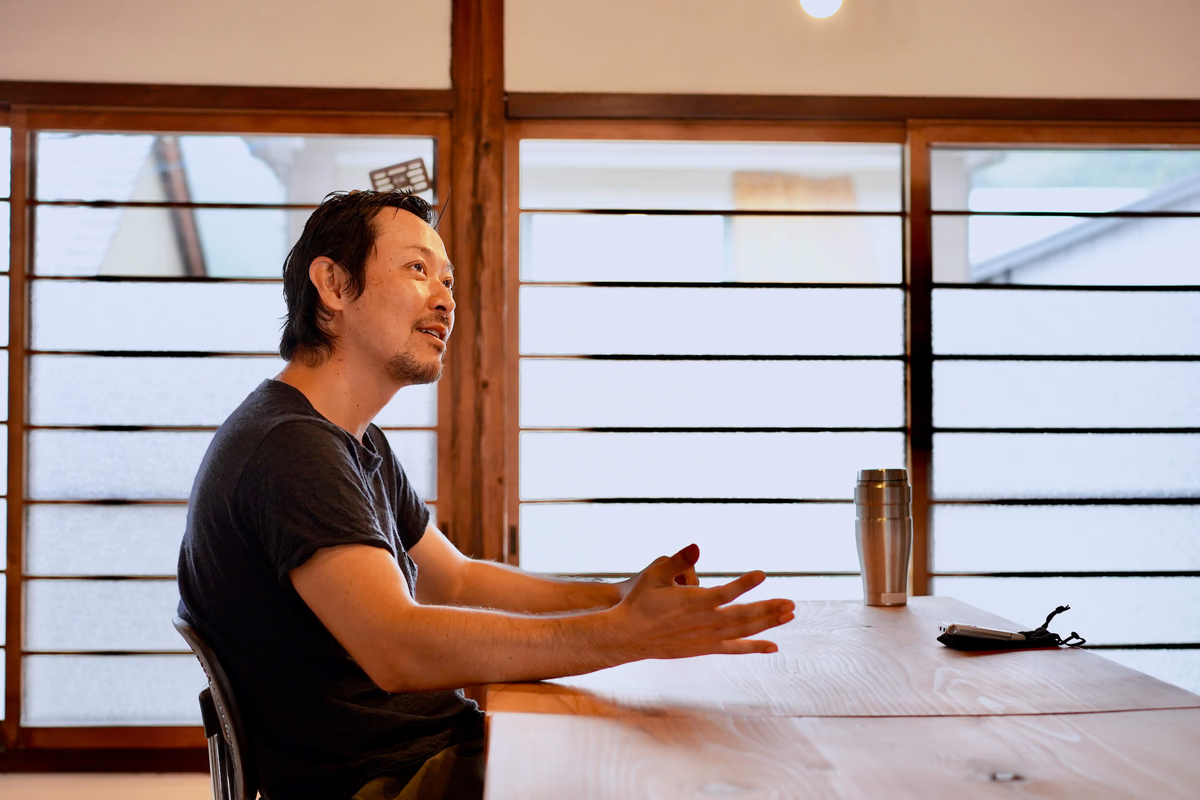
栗原:コーディングです。当時モノサスが募集していたのはデザイナーだったので、そのときは落ちてしまいました。まずはスキルが必要だと思って、別のWeb制作会社でバイトしていたら、半年後に永井さんから「もう一度面接しませんか」って突然電話がかかってきて。面接の雰囲気がフランクで、Web制作会社っぽくて楽しそうだなと思いました。今年末でもう入社10年になりますね。
入社してからはひたすら必死でした。自分は31歳でほとんど未経験で、周りは20代の人が第一線でやっているわけじゃないですか。その差を埋めるには経験を積むしかないと思い、当時はできないことでも「やります!」と手を挙げてやっていました。
神山では、仕事と生活が一緒にある
杉本:2016年には「ものさす塾」の塾長に。「神山に行ってほしい」と言われたときはどう思いましたか。
栗原:ちょうど運用チーム(Webマスターサポート)を立ち上げて、やっとメンバーが育って回るようになっていたし、次の一手を考えているさなかだったので、「いやです」って断りました。林さんには、これから運用チームを強化していくうえでも、人を育てる必要があるからと言われた記憶があります。結局、林さんが言うことには説得されちゃいがちなんですよね……。
杉本:運用チームを大きくするうえでも、栗原さん自身が人を育てるのがいいだろうという判断だったのかなと想像します。
栗原:そうかもしれませんが、それをやる意味とか意義が理解できなくてけっこうイラついていました。自分は「この世の中のため」とか顔が見えないのは得意じゃなくて。目の前にいるお客さんとかメンバーとか、顔が見える関係のほうが大事だなと思うんです。
杉本:神山塾に続いてサテライトオフィス立ち上げ、そしてよき出会いがあってご結婚もされて。2016年は大きな人生の転機のだったのかなと思います。生活も大きく変化したのでは。
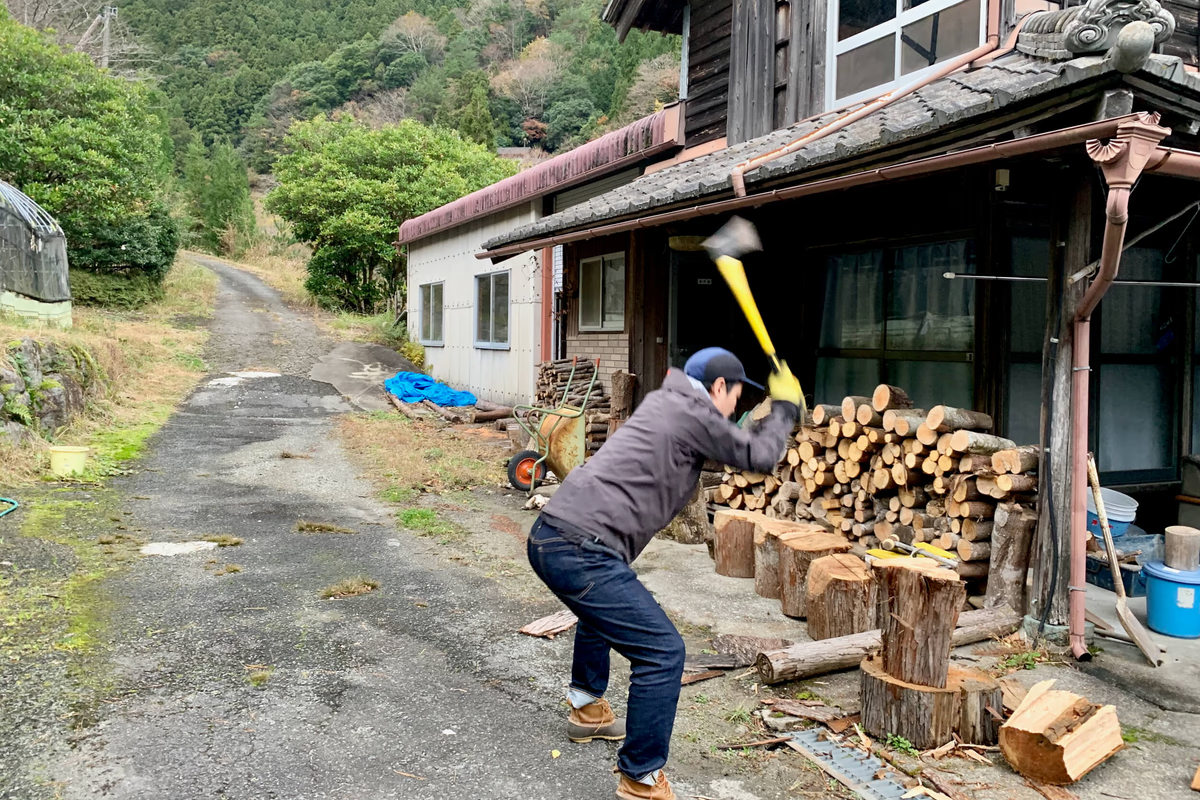
自宅で薪を割る栗原さん(栗原さんご提供)
栗原:神山の生活では「やることがある」んです。自分はもともと「これがやりたい」とかはないタイプで。でも、神山に住んでいると、生活するうえで木を伐らないといけないし、薪割りも草刈りもしないといけない。家でダラダラしているより、やらないといけないことがあるのはいいですね。体を動かすのは好きなので合っているかなと思います。
杉本:栗原さんにとって「仕事する」「働く」ってどんなことですか?
栗原:正直に話すとつまんないかもしれませんが、やっぱりお金を稼ぐ手段です。仕事と生活の境目がない人もいますが、自分は境目をつくりたいタイプ。生活するうえではお金も必要だし、そのなかで自分が一番やりたいと思っているWebでお金を稼ぎたいっていうのはあります。
神山オフィスとフルフレックス
杉本:栗原さんが神山で暮らしはじめて間もない2017年、モノサスはフルフレックス制度を導入しました。働き方はどう変化しましたか?
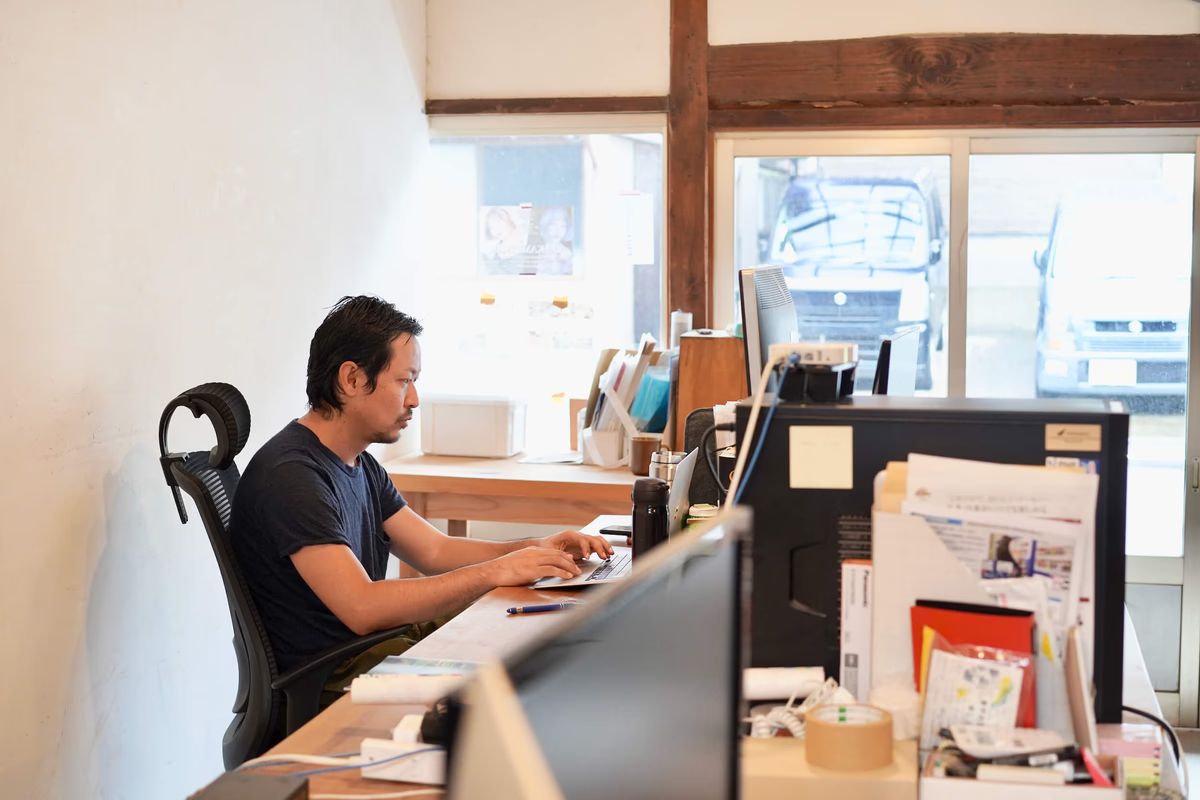
栗原:当時は、神山と代々木の運用メンバーのマネジメントをしていたので、管理するのが大変になりそうという意味で、「また、なんかへんな制度がはじまったな」という印象でした。「新しい制度を履き違えて捉えるメンバーが出たらどうしよう?」という心理ですよね。そもそも自分は入ってくる変化を除去したい気持ちが強いうえに、管理したいし管理されたい方でもあるんです。
運用の仕事は、「急ぎでここを変更してください」というオーダーがくるので、お客さんの勤務時間に合わせてやらないといけないんですね。一部で出勤時間を変えた人もいましたが、基本的には自分も含めて、そんなに働き方は変わりませんでした。
杉本:けっこう遅くまでオフィスのあかりがついていますよね。勤務時間はどうしているんですか?
栗原:神山の場合は、メンバーに聞いたら「スーパーが閉まる時間が早いから、9時から18時がいい」と言うのでそうしました。東京では終電を気にして働いていたけれど、神山は車で通勤しているからむしろ残業してしまうところがあって。今年からは、みんなで話し合ってだいぶ早く帰るようになりました。
それに、東京にいたときは仕事だけをしていた感じなんですよね。週末はどこにも出かけずに寝ていて、月曜日になると仕事に行くというルーティンを繰り返していました。神山に来て結婚をしてからは、生活というものに目を向けるようになりました。たとえば、今は妻が妊娠中で体調が悪かったので、自分が子どもたちの送り迎えや家事をしています。それに合わせて、5時には子どもを迎えに行き、寝かしつけたあとにまた仕事をするスタイルです。
杉本:今は、フルフレックスやフルリモートの先で、会社はどうなっていくといい思いますか?
栗原:ゆくゆくは、各自が自己管理で責任をもって役割を果たしつつ、仕事できるようになれば最強じゃないですか。その最終形態に至る段階のひとつとして、フルフレックスやフルリモートがあるのかな、と。
人を育てるリーダーとして大切にしていること
杉本:ものさす塾の塾生や運用チームのメンバーを育てるうえでどんなことを意識していますか。
栗原:もともとは、もっと距離が近かったし、細かく口を出していました。でも、見る案件が増えていくと、全案件に口を出していたら回りきらない。任せないといけなくなったので、我慢して距離を取るようになったんです。すると、距離をとった分だけ勝手にやってくれるし、それでいいんだとわかってきました。ただ、人によって距離感は変えています。もちろん、何かあってもアラートをあげられない人にはこっちから行きます。
杉本:栗原さん自身は、モノサスのなかに「教えてもらった」と思う人はいますか。
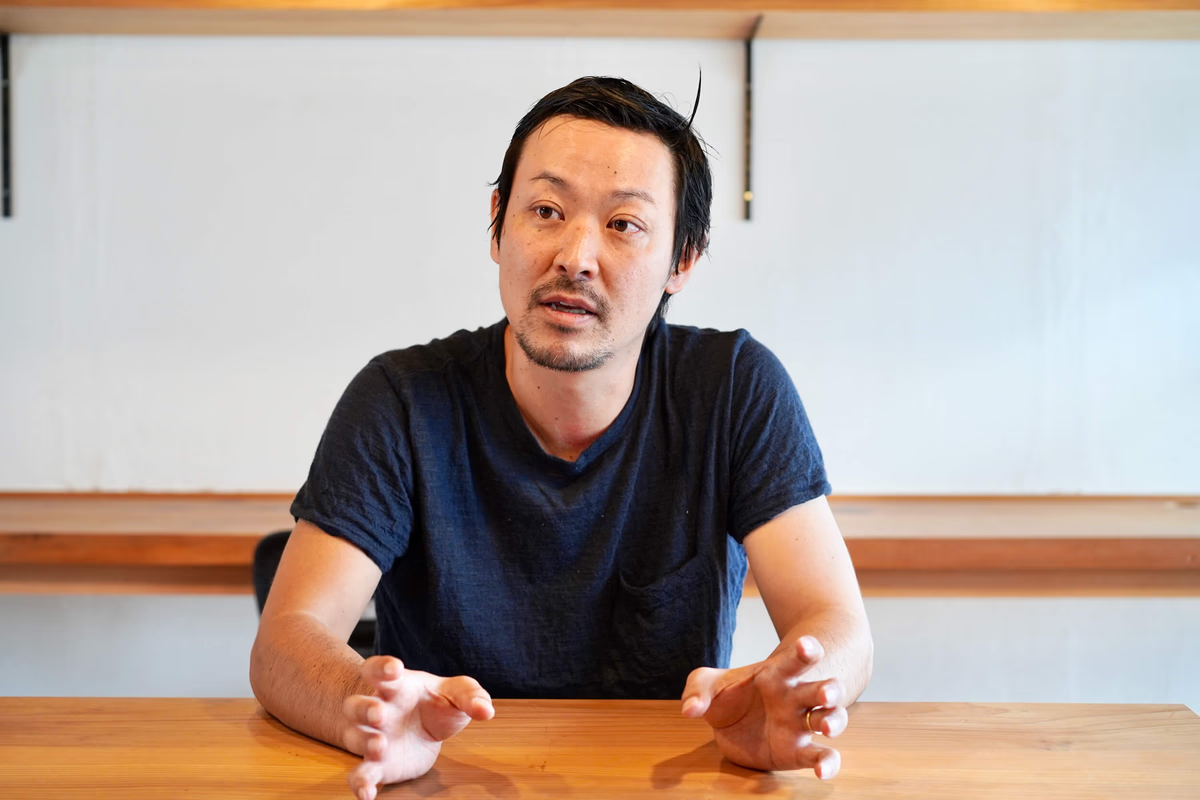
栗原:入社してからしばらくは、永井さん(副社長)の下で一緒に仕事していました。マネジメントも、プロジェクトの進行管理もすべて永井さんから教わりました。何か問題が発生するたびに、永井さんに相談して「どう処理したらいいか」を聞いて、永井さんの考えが正しいと思ってやってきたし、今もやっています。すべてを教えてくれたのは永井さんだったから、永井イズムは引き継いでいるのかなと思います。
杉本:永井さんに教わって、今も大事にしていることは?
栗原:判断に関するところですかね。たとえば、お客さんとの打ち合わせで、何か質問されると永井さんはパッと答えるんです。その裏に隠されている選択肢はどれだけあって、なぜその答えを選んだのか、すごくしつこく聞いていました。後日談で「すごくしつこくで嫌だった」って永井さんは言っていましたけど(笑)。
信頼されるWebマスターサポートをするために
杉本:運用のお仕事をするうえでは、お客さんから信頼してもらうことが大事だと思います。お客さんからの安心を得ていくうえで気をつけていることは?
栗原:第一に人間関係だと思っているので、はじめはコミュニケーションの数ですかね。メールでいいところをあえて電話をしたり、細かく連絡をとります。接点を増やすほどに相手のことを知れるし、いろんなことを話せるし、そこじゃないかなと思っています。
杉本:期待されたことをていねいに返して信頼を築くことに加え、こちらから提案できるようにもなりたいとおっしゃっていましたね。
栗原:やっぱり言われたことだけやっていると仕事はなくなってくるんですよね。自分たちから仕事をつくりだして、価値をつくっていかないと生きていけないなと考えています。今、自分たちの得意なところをつくっているところです。
杉本:運用の仕事のどんなところが好きですか。
栗原:顔を知ったお客さんと仕事ができること。5年、10年とおつきあいしているお客さんとは仕事もしやすいし、「もっとやってあげたい」という気持ちも自然と強くなります。こういう感覚は、Webマスターサポートならではだと思います。
杉本:10年もおつきあいが続く秘訣って何なのでしょう。
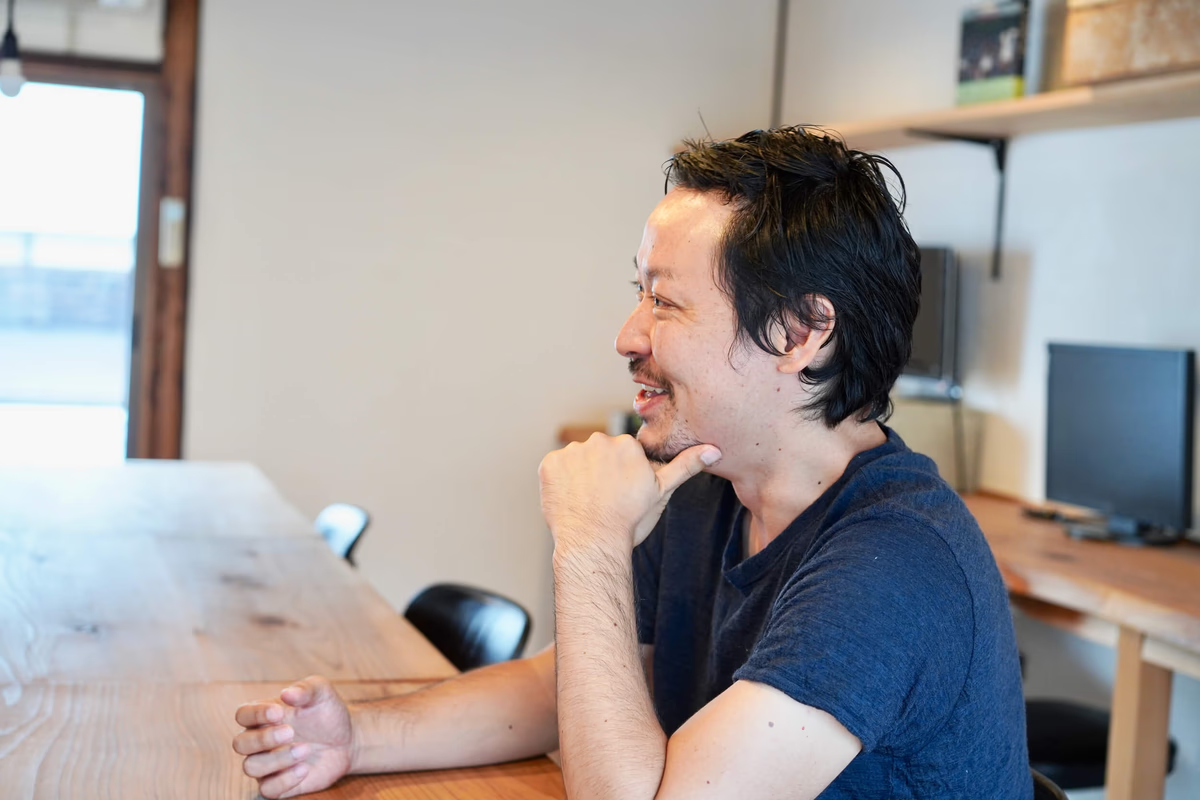
栗原:モノサスのWebマスターサポートは、言われたことは確実にこなす生真面目なところがあります。その誠実さがお客さんにとっては安心感になっているかなと思います。それに、10年間もおつきあいしていると、システムの理解度が深いと思うんです。そこがポイントになっているかなと思っています。
また、メンバーは噛めば噛むほどいい味が出てくるタイプが多い。「あれ、気付いたらやってくれている」「実はミスがないね」みたいな感じです。人間性もすごくいい。そこを知ってくれたうえで、おつきあいしてくださるお客さんが増えてきています。
杉本:今後も、そんなメンバーの良さを生かせるお仕事が増えていくといいですね。ありがとうございました!
実は、わたしはよく神山に行くので、モノサス神山のみなさんにはよく出会います。先日も道の駅で「杉本さん!」という声に振り返ると栗原さんと香川さん。手に持っていたヒラタケを見せてくれて「これめっちゃうまいですよ!」と教えてくれました。パスタに入れたり炊き込みご飯にしたりして楽しみました。今回は、ゆっくり話を聞かせてもらい、栗原さんとWebマスターサポートのみなさんのお仕事ぶりを垣間見ることができて、なんだかうれしかったです。また、栗原さんたちのお仕事について聞いてみたいなと思います。
